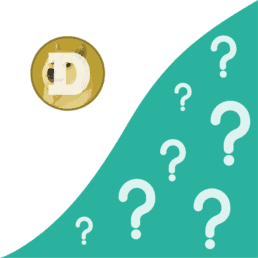What is Bitcoin?
Bitcoin is the ‘big’ cryptocurrency you’re most likely to have heard of or seen in the media. Bitcoin is the first digital decentralised peer-to-peer currency to take huge bounds toward widespread global acceptance. It is also the most valuable based on market cap and increasingly being accepted more broadly across the globe. Bitcoin was created by an anonymous entity who is only known by the name of Satoshi Nakamoto. It’s unclear to this day whether Sataoshi Nakamoto is a pseudonym for an individual or group of people working together.
Bitcoin is both built on, and operates on, a public ledger known as a blockchain. This blockchain records all payments and transactions between parties, with each transaction remaining visible on the blockchain forever – creating total transparency throughout the entire ecosystem. Bitcoin is a decentralised currency, meaning no individual, corporation or government controls it, which was a fundamental ingredient in both its creation and success.
Bitcoin emerged from the global recession of 2008, where stock markets crashed and the global economy was threatened. It’s fundamentals strive to provide financial stability, control and transparency to its users.
Bitcoin is slowly being accepted as a viable method of payment and store of value by mainstream businesses and national economies alike. As time goes on, more countries experiencing hyperinflation or severe instability are looking at the potential for Bitcoin to help failing traditional financial systems.
Let’s take a closer look at how Bitcoin is swiftly becoming the biggest game-changer since the birth of the internet!
Secure network
The bitcoin network is highly secured with cryptography. To authenticate a transaction, miners need to solve complex puzzles or mathematical equations. Then each transaction is verified by at least 6 miners to ensure its legitimacy and accuracy.
Every transaction is recorded on a public blockchain, they cannot be reversed, duplicated, or altered in any way. Any attempt to do this will be prevented by the miners who can reject the transaction.
Privacy
Privacy is one of the most important features of Bitcoin and offers key advantages over our current financial systems. This privacy is achieved through the use of public wallet addresses. These non-specific arrangements of letters and numbers identify both the source and address of a transaction, however neither are associated with any of your personal details. This means all transactions are recorded but your personal information stays private.
Global reach
One of the key advantages of a decentralised currency like Bitcoin is that you can transfer Bitcoin to anyone in the world, irrespective of the geographical location of either party. The platform is specifically built to be used across the entire world.
This also means that the intrinsic value of 1 BTC is universal. This has countless benefits over traditional financial systems; for example, helping those in countries experiencing hyperinflation maintain the value of their assets.
Controlled supply
Just like gold, Bitcoin must also be mined, but digitally. This is done by miners using computing power to solve an algorithm which releases Bitcoin. As more coins are mined, the scarcity of Bitcoin increases as there will only ever be 21 million Bitcoins in existence. As the number of mined Bitcoins increases, the algorithm to release them becomes more difficult and needs more computing power to solve it.
The fundamentals of Bitcoin’s use and value is ultimately based on supply and demand. As demand for Bitcoin increases their availability decreases, which ultimately boosts their value.
Learn more about cryptocurrency
What is Ethereum?
What is crypto
What is Cryptocurrency?
What is crypto
What is a Blockchain?
What is crypto
What is Money?
What is crypto
What is DeFi?
What is crypto
What is Chainlink?
What is crypto
What is a Whitepaper?
What is crypto
What is an ERC-20 Token?
What is crypto
What is Proof of Stake?
What is crypto
What is Proof of Work?
What is crypto
What is Stellar?
What is crypto
What is Tezos?
What is crypto
What is a Stablecoin?
What is crypto
What is Litecoin?
What is crypto
What is Cardano?
What is crypto
What is NEO?
What is crypto
What is Monero?
What is crypto
What is Bitcoin Cash?
What is crypto
What is Polkadot?
What is crypto
What is Basic Attention Token?
What is crypto
What is Solana?
What is crypto
What is Binance Coin?
What is crypto
What is Dogecoin?
What is crypto
What is a Bitcoin ETF?
What is crypto
What is a NFT?
What is crypto
Sign up to our newsletter
What is cryptocurrency?
Where to buy cryptocurrency?
How to buy cryptocurrency?
Manage cryptocurrency
Disclaimer
Our publications do not offer investment advice and nothing in them should be construed as investment advice. Our publications provide information and education for investors who can make their investment decisions without advice. The information contained in our publications is not, and should not be read as, an offer or recommendation to buy or sell or a solicitation of an offer or recommendation to buy or sell any cryptocurrency. Prices of cryptocurrency may go down as well as up and you may not get back the original amount invested. You should not buy cryptocurrency with money you cannot afford to lose. To see our full disclaimer click here.

























